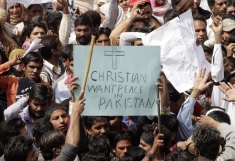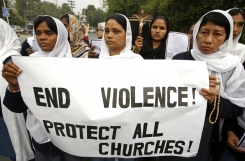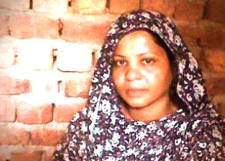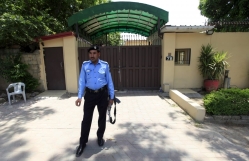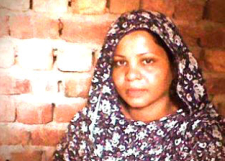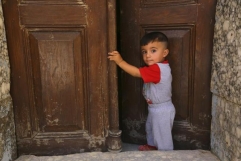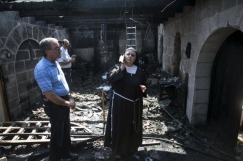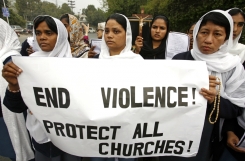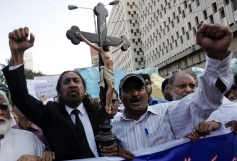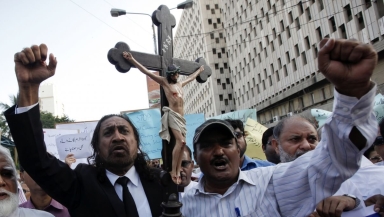
Police saved an illiterate Christian couple from a mob who tried to kill them in Pakistan for allegedly violating the Muslim-dominated country's anti-blasphemy laws, the latest in a string of violent attacks against religious minorities in that country.
According to local police chief Sohail Zafar Chattha, the couple did not even know what wrongdoing they had committed as the crowd tried to beat them to death, the Catholic News Agency reported.
"Muslims of the town gathered there and dragged the poor couple who didn't know what they had done. They were being beaten to death," he said.
The couple from the village of Makki in Punjab province had used an advertisement awning bearing college slogans as a sleeping mat. The slogans allegedly had Arabic inscriptions from the Quran, which the couple was not aware of.
The couple was accused of committing blasphemy by a local barber and two clerics by sleeping on a mat with Quranic inscriptions on it. Soon, a crowd tried to lynch them. They were then rescued by the police.
One of the clerics has already been arrested.
Christian human rights lawyer Nadeem Anthony praised the police for their timely rescue, saying vigilant law enforcement would deter "the elements who take the law into their own hands."
The anti-blasphemy laws in Pakistan, where 97 percent of the people are Muslims, have been "continually misused" against "the poor and defenceless Christians of Pakistan," said the Legal Evangelical Association Department, a Christian human rights NGO based in the country.
Last year, over 100 people were charged with the murder of a Christian couple in Kot Radha Kishan, who were accused of desecrating the Quran and were later killed, with their burnt bodies found in the brick kiln where they worked.
Since 1987, 633 of the 1,335 people accused under different clauses of the blasphemy law were Muslims. Almost 500 of the accused were Ahmedis, followed by 187 Christians. The rest were Hindus.
"Critics say the fact that minorities figure so prominently in the cases shows how the laws are unfairly applied. Often the laws are used to settle personal scores and have little or nothing to do with religion," BBC wrote last year.
"Correspondents say the mere accusation of blasphemy is enough to make someone a target for hard-liners, as is defending those accused of blasphemy or calling for the laws to be reformed."










